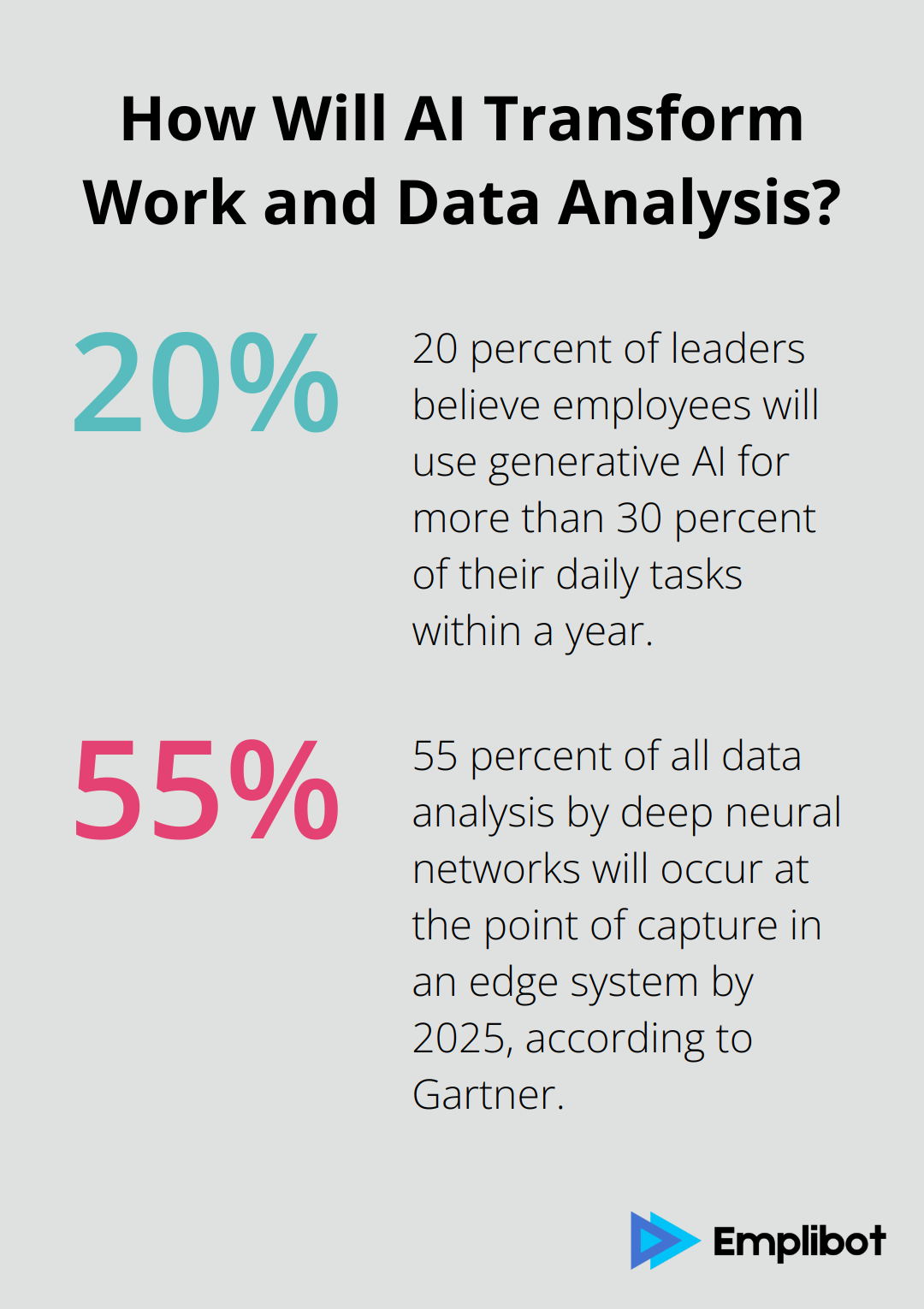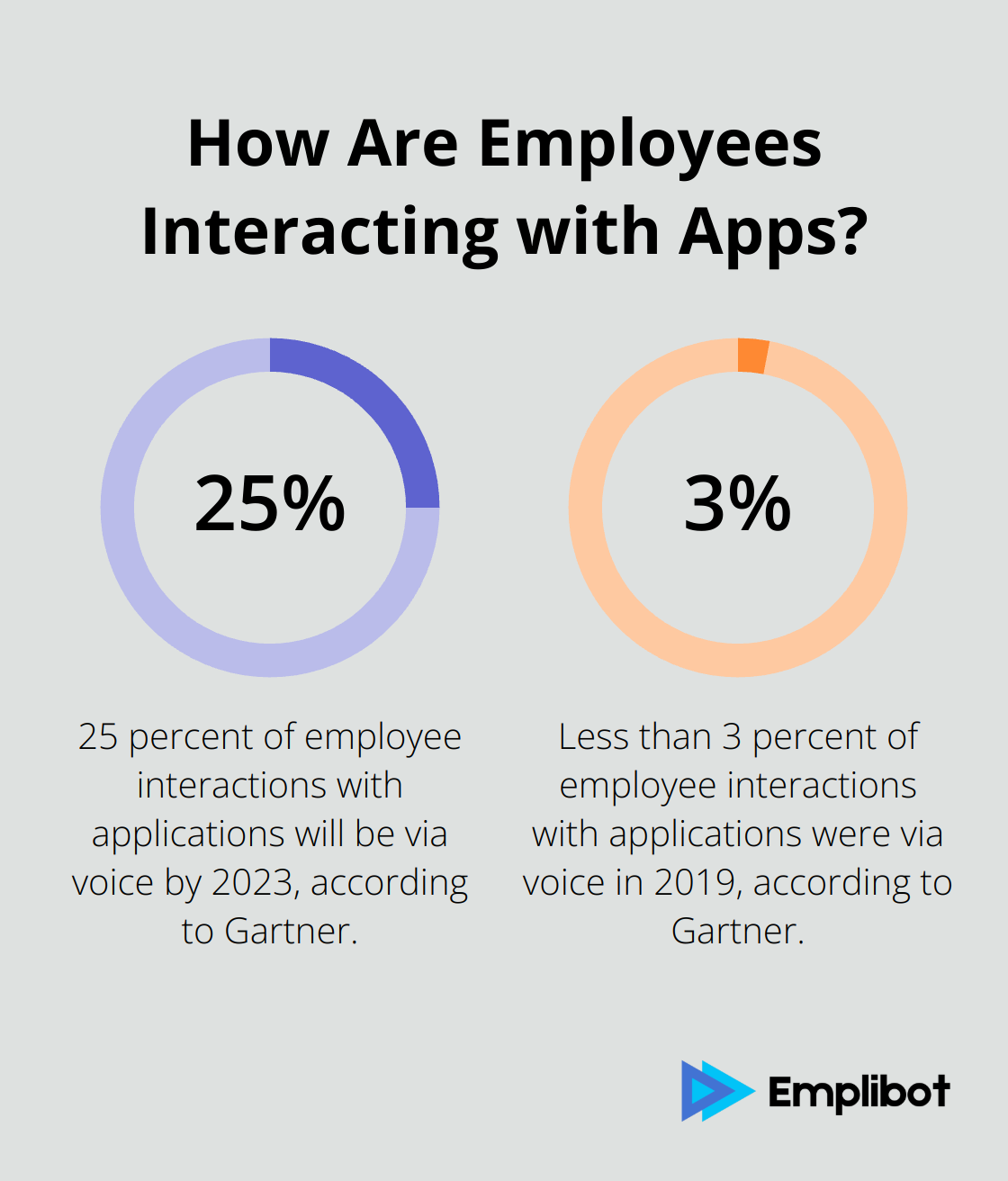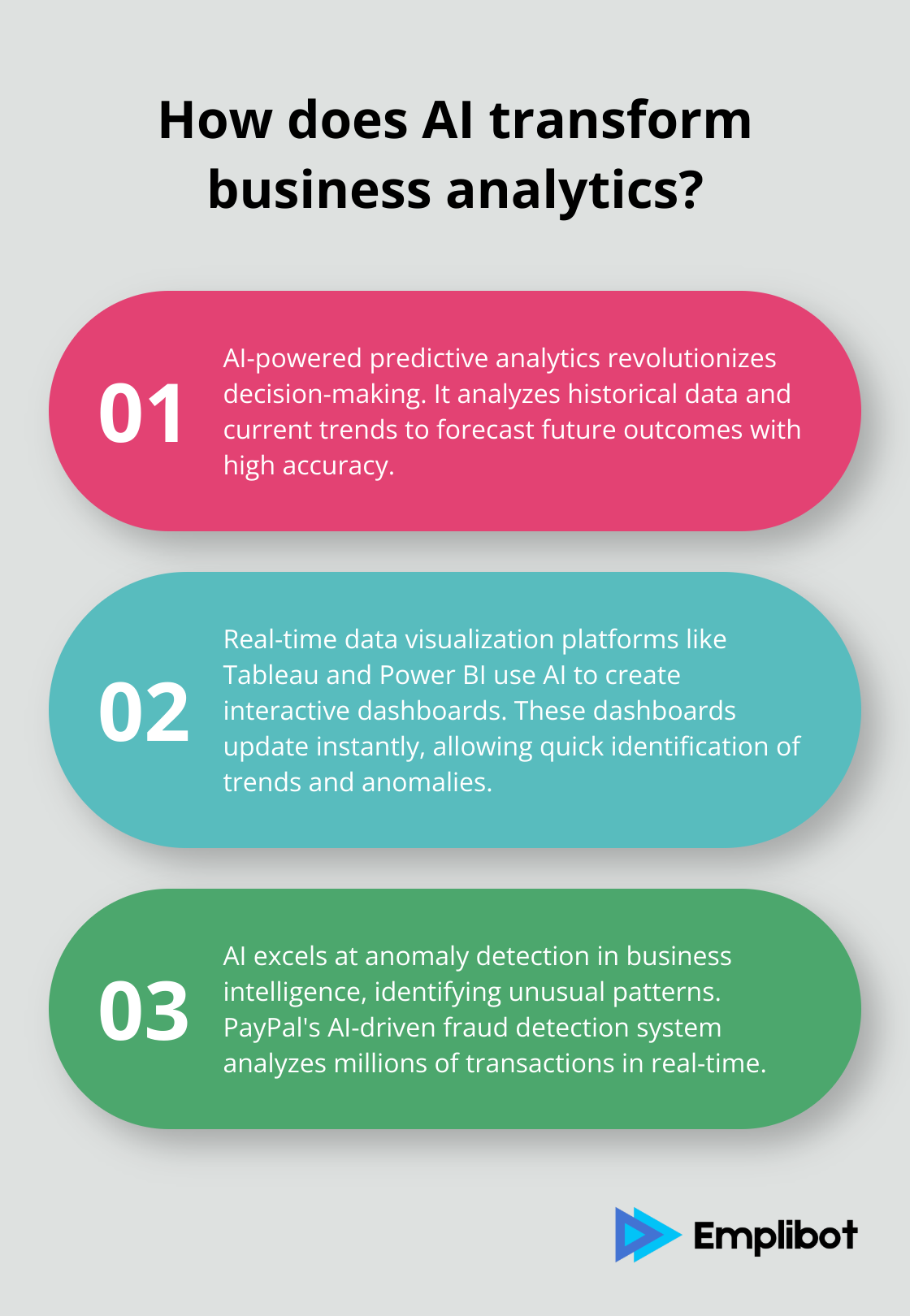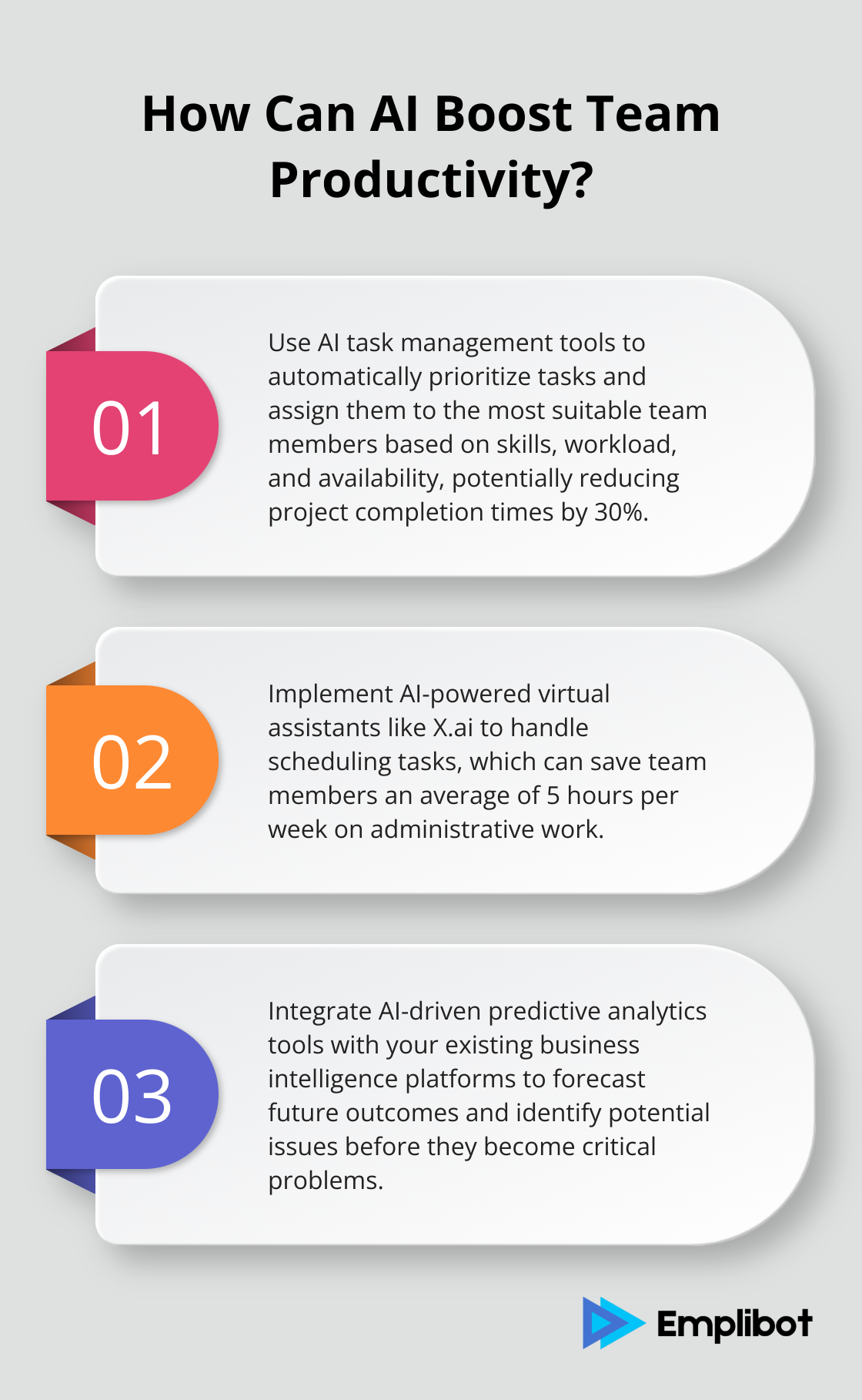At Emplibot, we’ve seen firsthand how AI tools can revolutionize business productivity. The rapid advancement of artificial intelligence has opened up new possibilities for streamlining operations and boosting efficiency across industries.
In this post, we’ll explore the best AI tools for business productivity and how they can transform your workflow. From task management to data analysis, these cutting-edge solutions are changing the game for businesses of all sizes.
Contents
ToggleAI Task Management: Supercharging Your Workflow
AI-powered task management tools revolutionize how companies handle their workload in today’s fast-paced business environment. These intelligent systems offer sophisticated features that dramatically boost productivity and efficiency, going far beyond simple to-do lists.
Smart Prioritization
AI task management excels at intelligent task prioritization. These tools automatically sort and rank tasks by analyzing factors such as deadlines, project importance, and team capacity. This ensures teams always focus on the most critical work first. A McKinsey study reports that only 20 percent of leaders believe employees will use generative AI for more than 30 percent of their daily tasks within a year.
Automated Task Assignment
AI doesn’t stop at prioritization; it also assigns tasks to the most suitable team members. These systems consider skills, workload, and availability to distribute tasks efficiently. This automation reduces the time managers spend on task allocation and minimizes the risk of work overload for individual team members.
Predictive Analytics for Project Management
Advanced AI task management tools use predictive analytics to forecast potential bottlenecks or delays in projects. These systems analyze historical data and current project progress to alert managers to potential issues before they become critical problems. Gartner predicts that more than 55% of all data analysis by deep neural networks will occur at the point of capture in an edge system by 2025.
Performance Insights
AI task management provides valuable insights into team performance and workflow patterns. Businesses can make data-driven decisions to optimize their processes continually by analyzing task completion rates and identifying recurring bottlenecks.
Real-World Success Stories
Successful implementations of AI task management are becoming increasingly common across various industries. For example:
- A major e-commerce company reported a 30% reduction in project completion times after implementing an AI-driven task management system.
- A global marketing agency saw a 25% increase in client satisfaction scores, attributed to improved deadline adherence facilitated by AI task prioritization.

As AI technology continues to evolve, we can expect even more sophisticated task management capabilities. From natural language processing (which can interpret and create tasks from team conversations) to AI assistants (that can autonomously handle routine tasks), the future of work is set to become increasingly efficient and productive.
The next frontier in productivity enhancement lies in AI-powered communication and collaboration tools. These innovative solutions promise to streamline team interactions and project management, further amplifying the benefits of AI in the workplace.
How AI Enhances Team Communication
AI transforms team communication and collaboration in businesses worldwide. This technology offers practical solutions to streamline interactions and boost productivity.
AI-Powered Virtual Assistants
Virtual assistants powered by AI revolutionize team communication. These intelligent tools schedule meetings, send reminders, and draft emails based on context and previous communications. Gartner predicts that by 2023, 25 percent of employee interactions with applications will be via voice, up from under 3 percent in 2019.

X.ai, an AI scheduling assistant, exemplifies this technology. It coordinates meetings across time zones and manages complex scheduling conflicts. Users report an average time savings of 5 hours per week on scheduling tasks alone.
Smart Meeting Management
AI transforms meeting conduct and management. Otter empowers everyone to engage and be more productive in meetings with real-time automated notes, summaries, and action items. This allows participants to focus on discussions rather than note-taking.
Zoom’s Smart Gallery feature uses AI to create individual video feeds for in-room participants in hybrid meetings. This technology levels the playing field for remote attendees. Companies report up to 30% increase in engagement and participation in hybrid settings with this feature.
AI-Driven Project Management
Project management platforms driven by AI take collaboration to new heights. These tools surpass simple task tracking. They use machine learning algorithms to:
- Predict project timelines
- Identify potential bottlenecks
- Suggest resource allocation
Forecast.app, for instance, uses AI to automate project planning and resource management. Their clients report a 20-30% increase in project profitability due to more accurate time and budget estimates.
Integration and Upskilling
While AI tools offer impressive capabilities, they augment human skills rather than replace them. Successful implementations involve thoughtful integration of AI tools with existing workflows. Companies should focus on upskilling team members to leverage these new technologies effectively.
Future of AI in Team Communication
The potential for AI in team communication and collaboration continues to expand. Future innovations may include AI-powered brainstorming assistants and virtual reality meeting spaces enhanced by AI. These advancements will push the boundaries of team productivity even further.
As AI reshapes communication, it also transforms data analysis and decision-making processes. The next section explores how AI-powered tools provide valuable insights and support informed business decisions.
AI-Driven Data Analysis for Better Business Decisions
Predictive Analytics Transforms Decision-Making
AI-powered predictive analytics revolutionizes business decision-making. These tools analyze historical data and current trends to forecast future outcomes with high accuracy. By leveraging predictive and prescriptive analytics, AI enables organizations to not only analyze historical data but also forecast future outcomes. This capability allows businesses to make more informed decisions and stay ahead of market trends.
Real-Time Data Visualization Provides Instant Insights
The ability to visualize complex data in real-time changes the game in business analytics. Platforms like Tableau and Power BI use AI to create interactive dashboards that update instantly, allowing decision-makers to spot trends and anomalies quickly. This timely access to insights can make the difference between seizing an opportunity and missing it entirely.
AI-Powered Anomaly Detection Enhances Security
AI excels at anomaly detection in business intelligence. These systems identify unusual patterns in data that might indicate fraud, equipment failure, or market shifts. PayPal’s AI-driven fraud detection system analyzes millions of transactions in real-time, contributing to the company’s efforts in fraud prevention.
Integration of AI Across Business Functions
The next frontier in AI implementation involves integrating powerful analytical capabilities with other AI-driven tools across the organization. This holistic approach promises to unlock even greater productivity gains and competitive advantages. Companies that successfully integrate AI across multiple business functions (such as marketing, sales, and operations) report significant improvements in overall efficiency and decision-making speed.
Human Expertise Remains Essential
AI-powered analytics tools offer immense potential, but they do not replace human judgment. The most successful implementations of these technologies involve a symbiosis between AI insights and human expertise. Business leaders must train their teams to interpret AI-generated insights effectively and apply them in the context of their industry knowledge and experience.

Final Thoughts
AI tools transform business productivity across various domains. These technologies offer unprecedented opportunities for efficiency and growth. The best AI tools for business productivity seamlessly integrate into existing workflows, augment human capabilities, and provide actionable insights.

To implement AI solutions, businesses must identify key areas where automation can have the most significant impact. Companies should assess current processes, set clear objectives, and choose AI tools that align with specific needs. Employee training and change management are essential for smooth adoption of these technologies.
At Emplibot, we help businesses harness the power of AI for content marketing and social media management. Our AI-powered content creation platform automates the entire process from keyword research to content distribution. This allows companies to focus on strategic growth while we handle their online presence, potentially boosting productivity and reaching wider audiences.










 Rated Excellent 4.5
Rated Excellent 4.5